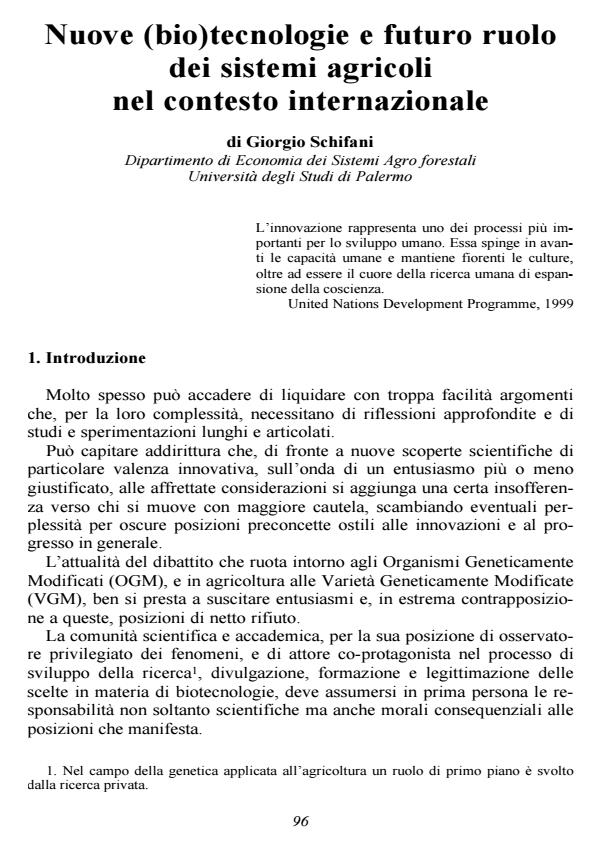Nuove (bio)tecnologie e futuro ruolo dei sistemi agricoli nel contesto internazionale
Journal title ECONOMIA AGRO-ALIMENTARE
Author/s Giorgio Schifani
Publishing Year 1 Issue 2000/2
Language Italian Pages 39 P. File size 100 KB
DOI
DOI is like a bar code for intellectual property: to have more infomation
click here
Below, you can see the article first page
If you want to buy this article in PDF format, you can do it, following the instructions to buy download credits

FrancoAngeli is member of Publishers International Linking Association, Inc (PILA), a not-for-profit association which run the CrossRef service enabling links to and from online scholarly content.
The Author studied the subject of Biotechnology that are based on genetic manipulation utilised in agriculture. He aimed to analyse both the reasons that have moved geneticists towards biotechnology varieties (increase of world population and hunger defeat, advantages for consumers, diffusion of a less polluted agriculture), and also the opposite positions based on relationship between populations and available food, expansion of resistant varieties, environmental pollution, reduction of biodiversity. The author analysed also the ethics issue and the opportunity to give patent to GMO, underlining problems about international regulations. A paragraph is dedicated to safety of products and labelling. He gave information about diffusion of transgenic plants in the world, the attention paid by all the countries on this subject. Conclusions underlined that policy decision could be driven by multinational firms and by lobbies of the environmentalists, consumers and EU producers. Therefore the Author pointed out the role of Italy in the international context about GMO. He assumed a future scenario based on two categories of food: organic and biotechnological food. At the end he questioned about the opportunity to continue diffusion of GMO, otherwise to look to other lines of research in order to overcome the problem of hunger.
Giorgio Schifani, Nuove (bio)tecnologie e futuro ruolo dei sistemi agricoli nel contesto internazionale in "ECONOMIA AGRO-ALIMENTARE" 2/2000, pp , DOI: